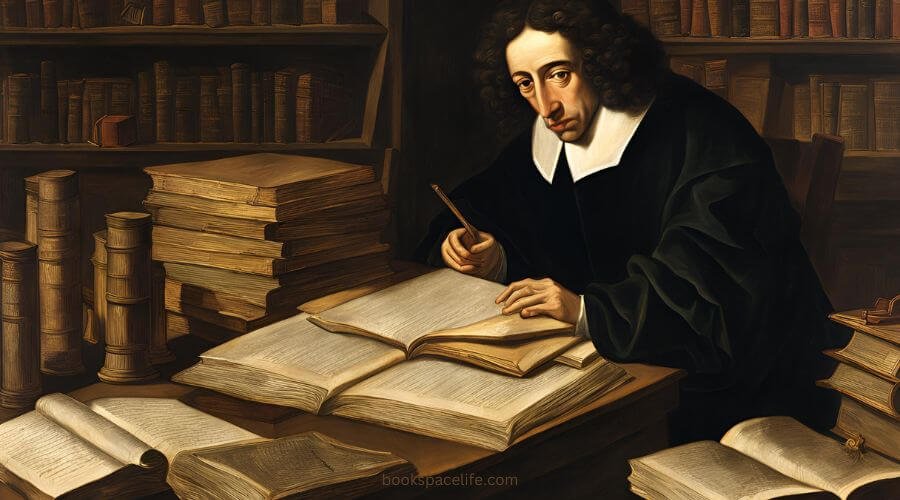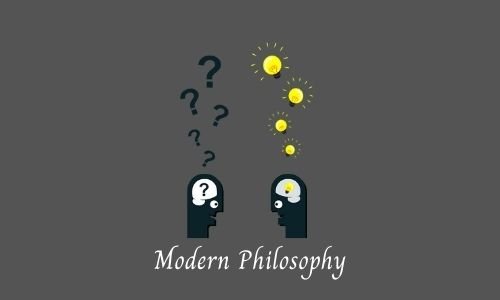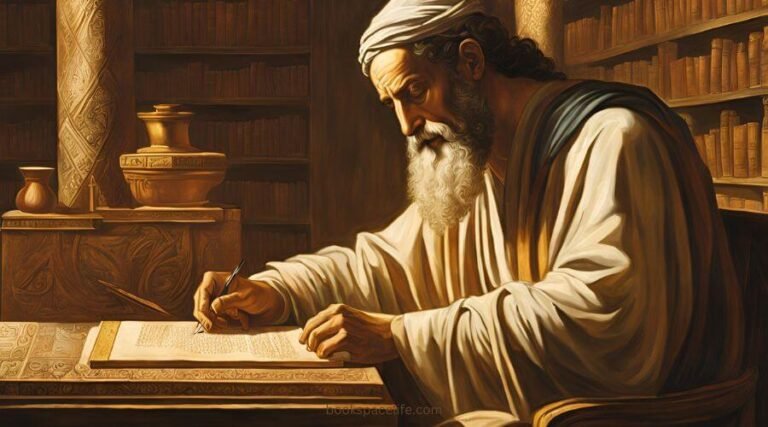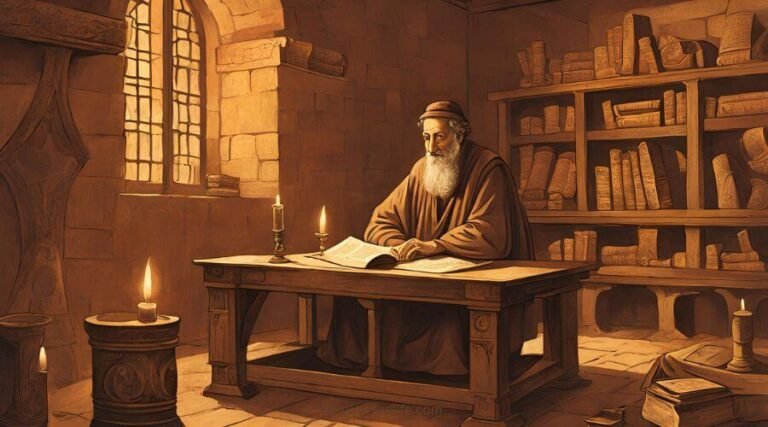Baruch Spinoza
Table of Contents
Baruch Spinoza: The Philosopher Who Redefined Jewish Thought and Western Philosophy
Baruch Spinoza (1632-1677 CE) is often regarded as one of the most revolutionary thinkers in Western philosophy, blending elements of Jewish intellectual traditions with radical ideas that challenged both religious orthodoxy and scientific thought.
Baruch Spinoza’s work remains a cornerstone of modern philosophy, particularly in the areas of ethics, metaphysics, and the philosophy of religion.
Spinoza’s life, education, and philosophical ideas not only shaped the intellectual landscape of his time but also set the stage for later philosophical movements such as the Enlightenment.
This blog post will delve into the life of Baruch Spinoza, examining his early life, travels, education, and the philosophical ideas that would later make him a central figure in both Jewish and Western intellectual history.

(1) Early Life and Education
Baruch Spinoza was born on November 24, 1632, in Amsterdam, the Netherlands, to a family of Portuguese Jewish descent.
His family had fled the Iberian Peninsula during the Inquisition, a period of persecution against Jews in Spain and Portugal.
Spinoza’s parents were part of the relatively affluent Jewish community in Amsterdam, which was a major center of trade and intellectual activity in the 17th century.
Spinoza’s early education was rooted in the Jewish tradition, and he attended the Talmud Torah school, where he learned Hebrew, Jewish texts, and the basic principles of Jewish law.
By the time he was a teenager, Spinoza had mastered the traditional curriculum and began to study Jewish philosophy, specifically the works of Jewish scholars such as Maimonides and the Jewish commentators on the Talmud.
However, it was Spinoza’s encounter with European philosophy, particularly the works of René Descartes and other early modern thinkers, that would mark a decisive turn in his intellectual journey.
He was introduced to Cartesian philosophy, which emphasized reason as the path to truth, and began to question the teachings of the rabbinic authorities and Jewish theology he had been raised with.
In his late teens, Spinoza became increasingly dissatisfied with the traditional Jewish community in Amsterdam.
This intellectual disillusionment, combined with his growing philosophical inquiries, eventually led him to adopt ideas that diverged sharply from mainstream Jewish thought, ultimately leading to his excommunication from the Jewish community in 1656.
The excommunication, or herem, was a significant event in Spinoza’s life and marked his departure from the religious doctrines of his youth.
(2) Philosophical Influences and Travels
After his excommunication, Spinoza distanced himself from the Jewish community and lived a relatively isolated life in Amsterdam.
While he continued to study Jewish texts, his intellectual trajectory was increasingly shaped by the scientific revolution and the rise of modern philosophy.
Spinoza’s early philosophical education was deeply influenced by the works of Descartes, but he also drew from the philosophy of Thomas Hobbes, Galileo, and the emerging natural sciences.
Spinoza was captivated by the idea that the natural world could be understood through reason and that the divine and the natural world were not separate but interconnected.
Though Spinoza did not travel widely, he spent significant periods of his life in various parts of the Netherlands.
Most notably, he lived in The Hague for much of his later years. During this time, he cultivated relationships with prominent intellectuals, including the philosopher and mathematician Jan de Witt, who was an advocate for Spinoza’s ideas.
These relationships allowed Spinoza to remain engaged in the intellectual currents of his time, despite his relatively modest lifestyle.
Spinoza’s years of study and solitude were punctuated by his personal dedication to improving his knowledge of philosophy, theology, and natural science.
He devoted his life to synthesizing these disciplines in a coherent philosophical system, and his work would eventually challenge both traditional religious thought and the scientific worldview of the time.
(3) Philosophy: Pantheism and Ethics
At the core of Spinoza’s philosophy was his radical and systematic view of God, nature, and the universe.
He rejected the traditional conception of God as a personal, anthropomorphic being who intervened in the world and rewarded or punished individuals based on their behavior.
Instead, Spinoza proposed a pantheistic view, which held that God and nature were one and the same.
For Spinoza, God was not a transcendent creator who existed outside the world but was immanent within the natural world itself.
In his magnum opus, Ethics, Spinoza laid out his vision of the universe, using a geometric method that combined elements of mathematics with philosophy.
He argued that everything in the universe is a part of the divine substance, and that everything that exists is an expression of God’s nature.
This understanding of God was profoundly different from the traditional view of a personal, relational deity found in Judaism, Christianity, and Islam.
One of Spinoza’s most revolutionary ideas was his argument that everything in the universe, including human beings, is subject to the same natural laws.
He rejected the notion of free will, claiming that human actions were determined by the laws of nature just as much as the movements of stars and planets.
This determinism was not a denial of human agency but an invitation to understand the underlying causes of human behavior.
By understanding these causes, Spinoza believed, individuals could achieve greater control over their lives and attain a kind of freedom, or conatus, defined by the pursuit of one’s own nature and well-being.
In Ethics, Spinoza also explored the nature of human emotions, offering a systematic analysis of how passions arise and how they can be overcome through reason.
His views on emotions and psychology were groundbreaking, and they laid the foundation for later developments in the philosophy of mind and psychology.
Spinoza’s pantheism also had profound implications for his views on religion and ethics. Since God and nature were one, Spinoza argued that religious scriptures, including the Hebrew Bible, were human creations rather than divinely inspired texts.
He criticized the anthropomorphic representations of God in the Bible and argued that religion should be seen as a way of promoting social harmony and moral behavior, rather than as a system of dogmatic beliefs.
Spinoza’s views on religion were particularly controversial among both Jewish and Christian theologians.
(4) Influence and Impact
Despite his relatively isolated life and the controversies surrounding his excommunication from the Jewish community, Spinoza’s work had a far-reaching influence on the development of Western philosophy.
His radical ideas about God, nature, and the universe challenged the traditional religious and philosophical paradigms of his time.
Spinoza’s pantheistic view of God influenced later thinkers such as Johann Wolfgang von Goethe, Friedrich Nietzsche, and Albert Einstein.
His work was also a significant precursor to the German idealist movement, particularly the philosophy of Hegel, and it laid the groundwork for later Enlightenment thinkers who sought to reconcile reason with religion.
In the realm of ethics, Spinoza’s ideas on human freedom and the role of reason in overcoming emotion had a profound impact on modern psychology and philosophy of mind.
His deterministic view of human behavior, while controversial, helped shape the development of modern scientific approaches to human nature, including behaviorism and cognitive psychology.
Although Spinoza was excommunicated from the Jewish community, his ideas continued to influence Jewish intellectuals, especially those in the Haskalah (Jewish Enlightenment) movement.
His emphasis on reason, ethics, and the separation of religious authority from political power resonated with Enlightenment thinkers and influenced the development of secular Jewish thought.
Spinoza’s legacy in Jewish philosophy is complex. While he is often viewed as a controversial figure in the tradition of Jewish thought, his ideas on God, ethics, and reason continue to provoke discussion among contemporary Jewish thinkers and scholars.
In the centuries following his death, Spinoza’s philosophy became a cornerstone of the secular Jewish intellectual tradition, particularly among those advocating for the separation of religion and state.
(5) Conclusion
Baruch Spinoza’s life and work have left an indelible mark on the course of Western philosophy and Jewish thought.
His philosophical system, with its radical ideas about God, nature, and human behavior, not only challenged the religious orthodoxy of his time but also laid the groundwork for many of the intellectual movements that would follow, from the Enlightenment to modern scientific thought.
Though his ideas were controversial and led to his excommunication from the Jewish community, his contributions to philosophy and religion remain deeply influential.
Today, Spinoza is remembered as one of the most important thinkers in history—his work continues to inspire intellectual inquiry and debate in both philosophy and the study of religion.







